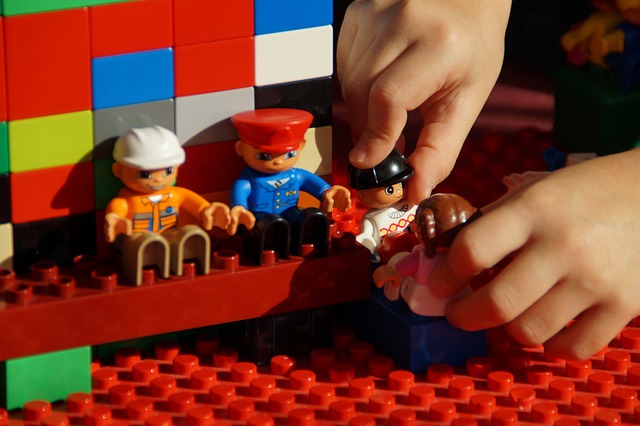Child welfare attorneys and child protection lawyers within the juvenile court system play a vital role in safeguarding the rights and well-being of children subjected to neglect and abuse. These legal professionals handle complex cases involving child welfare, advocating for the best interests of children by investigating home environments, assessing parental capabilities, and establishing safe living arrangements, often including foster care legal services if necessary. They differentiate between delinquent behavior and signs of maltreatment within the intersection of juvenile delinquency and child neglect cases. Their work aims to promote holistic development and rights of children, ensuring appropriate care and support. Child advocacy organizations further enhance their efforts by raising awareness, influencing policy, and providing resources. The coordinated response from the juvenile court system, child welfare attorneys, foster care legal services providers, and child advocacy entities is integral to upholding the rights and dignity of children involved in such cases. Juvenile lawyers, also known as child protection and child neglect attorneys, are experts in juvenile law and child advocacy systems, representing children's interests in court and championing their rights. Their expertise is crucial in foster care legal services placement, custody arrangements, and protective orders, with the aim of creating safe environments and preventing future abuse or neglect through diligent representation. Juvenile delinquency cases are handled with a keen understanding of the underlying issues of child neglect and abuse, ensuring that legal protections align with the child's best interests. The role of a child rights lawyer is pivotal in navigating the complexities of juvenile law and advocating for long-term solutions to protect children's welfare. These attorneys work collaboratively with social services and child protection agencies, striving for resolutions that prioritize the child's safety and future stability.
In the complex and sensitive realm of juvenile law, ensuring the safety and well-being of children subjected to neglect or abuse is paramount. This article delves into the critical roles that various legal professionals play in safeguarding the rights of these vulnerable individuals. From child welfare attorneys advocating for legal safeguards in foster care placements to juvenile lawyers navigating the intricate child protection systems, each expert contributes uniquely to the child’s journey toward a stable and nurturing environment. The intersection of juvenile delinquency and child abuse necessitates a thorough understanding of the law, which these professionals provide. We will explore how child rights lawyers and foster care legal services are integral in promoting advocacy, influencing welfare decisions, and building robust cases for victims’ rights and safety within the juvenile court framework. This comprehensive overview underscores the importance of legal representation in upholding child welfare and ensuring justice for those harmed by neglect or abuse.
- Understanding Child Neglect and Abuse within Juvenile Law Contexts
- Navigating the Role of a Child Protection Attorney: Advocating for Child Rights
- The Child Welfare Attorney's Perspective: Legal Safeguards in Foster Care Placements
- Juvenile Court Systems and the Importance of a Child Abuse Attorney in Legal Proceedings
Understanding Child Neglect and Abuse within Juvenile Law Contexts

In the realm of juvenile law, child neglect and abuse are prevalent issues that demand the expertise of child protection lawyers and child welfare attorneys. These legal professionals work within the juvenile court system to ensure the safety and well-being of children who have been victims of neglect or abuse. The role of a child neglect attorney or a child rights lawyer is pivotal in advocating for the best interests of the child, often involving complex legal processes that include the investigation of home environments, the assessment of parental capabilities, and the determination of safe, stable, and nurturing living arrangements. When a case of neglect or abuse is reported, these legal experts intervene to protect the child’s rights and navigate the intricacies of child welfare law, which can involve foster care legal services if the child cannot remain with their family. The juvenile court serves as the decision-making body where a child abuse attorney or child protection lawyer may seek protective orders, custody arrangements, and other legal remedies to safeguard the child’s interests.
Juvenile delinquency often overlaps with child neglect and abuse cases, requiring a nuanced approach from juvenile lawyers. In such instances, a child welfare attorney must consider the underlying issues that may lead to harmful behaviors, distinguishing between acts of delinquency and signs of abuse or neglect. The goal is always to promote the holistic development and rights of the child, ensuring they receive appropriate care and support. Foster care legal services are often utilized in these cases to provide a stable environment for the child, while the child abuse attorney works tirelessly to hold accountable those responsible for the harm inflicted on the child. Child advocacy organizations also play a critical role in supporting these efforts by raising awareness, influencing policy, and providing resources to both the children and their legal representatives. Through coordinated efforts among child welfare attorneys, juvenile lawyers, and child advocacy entities, the justice system strives to uphold the rights and dignity of every child involved in neglect or abuse cases.
Navigating the Role of a Child Protection Attorney: Advocating for Child Rights

In cases of child neglect or abuse, the juvenile law system plays a pivotal role in safeguarding the welfare and rights of children. A child protection attorney specializing in juvenile court proceedings is instrumental in this process. These legal experts are adept at navigating the complexities of child welfare law, advocating zealously for the best interests of the child. Their expertise encompasses a range of issues, from child neglect to abuse and even juvenile delinquency. They work tirelessly to ensure that the legal services provided align with the child’s needs, whether it involves foster care placement or other protective measures. Their role is not merely to represent the child in court but to advocate for their rights within the child welfare system, striving to secure a safe and nurturing environment free from harm.
The juvenile lawyer’s commitment extends beyond the courtroom, as they often collaborate with child advocacy groups, social services, and child rights organizations. Their comprehensive understanding of child protection law enables them to effectively navigate the system, advocating for the child’s interests at every juncture. In foster care legal services cases, for instance, these attorneys ensure that the child’s voice is heard and that their fundamental rights are protected. They are the child’s legal champion, working diligently to prevent future abuse or neglect by providing representation that upholds the highest standards of child welfare law.
The Child Welfare Attorney's Perspective: Legal Safeguards in Foster Care Placements

In the realm of juvenile law, child welfare attorneys play a pivotal role in safeguarding the rights and well-being of children who are victims of neglect or abuse. These legal professionals, often referred to as child protection attorneys, navigate the complex system of child welfare to ensure that each child’s interests are at the forefront during foster care placements. The juvenile court system entrusts child welfare attorneys with the responsibility of representing the child’s best interests, providing a voice for those who cannot advocate for themselves. These attorneys work diligently to ensure that legal safeguards are in place, guaranteeing that foster care placements are not only temporary but also conducive to the child’s emotional and psychological development. The provision of foster care legal services is crucial for the child’s journey through this challenging transition, with child welfare attorneys advocating for stable, supportive, and safe environments until a more permanent solution is found.
The legal framework governing foster care placements is intricate and demands a deep understanding of juvenile law by child welfare attorneys. They must be well-versed in the nuances of child rights law to effectively challenge any aspect of the foster care system that may not align with the child’s best interest. Child neglect attorneys, in particular, are instrumental in ensuring that the legal protections afforded to children under child abuse statutes are upheld. Their role is not only to represent the child in court but also to advocate for services and support that address the child’s unique needs, thereby contributing to the prevention of child neglect and abuse in the long term. Through their tireless efforts, these attorneys help bridge the gap between the legal system and child advocacy, striving to uphold the rights and dignity of every child under their care.
Juvenile Court Systems and the Importance of a Child Abuse Attorney in Legal Proceedings

In the realm of juvenile law, the juvenile court system plays a pivotal role in addressing cases involving child neglect and abuse. These specialized courts are designed to handle matters pertaining to child welfare, where the focus is on the best interests of the child. Within this context, the role of a child protection attorney becomes paramount. These legal professionals, often referred to as juvenile lawyers or child neglect attorneys, are skilled in juvenile law and advocate for the rights and well-being of children. Their expertise is crucial in navigating the complexities of child welfare legal proceedings, ensuring that the voice of the child is heard and their needs are prioritized. A child protection attorney works tirelessly to safeguard the child’s interests, whether it involves advising on foster care legal services or representing the child in court to prevent abuse and neglect.
The importance of engaging a child rights lawyer cannot be overstated when dealing with juvenile delinquency cases that may indirectly stem from an environment of abuse or neglect. These attorneys are not only adept at juvenile law but also deeply familiar with the child advocacy systems. They work to protect the child’s rights and interests, striving for outcomes that promote their long-term welfare and stability. A child abuse attorney will often collaborate with social services and child protection agencies, ensuring a comprehensive approach to the child’s case. Their legal acumen is instrumental in maneuvering through the intricacies of child welfare attorney requirements, aiming for resolutions that prioritize the safety and future of the child involved.
In conclusion, the intersection of child neglect and abuse within juvenile law necessitates a robust understanding of the legal frameworks available to protect children’s rights and well-being. The roles of a child protection attorney and a child welfare attorney are pivotal in navigating the complexities of foster care placements and juvenile court systems. Child neglect attorneys and child abuse attorneys play critical roles in advocating for child rights and ensuring that legal proceedings reflect the best interests of the child. It is imperative that juvenile lawyers across these specializations collaborate effectively to uphold child welfare and advocate for child advocacy, offering a safety net for vulnerable children. Through these collective efforts, we strive to foster an environment where every child’s voice is heard and their dignity preserved, contributing to a more just and compassionate society.
